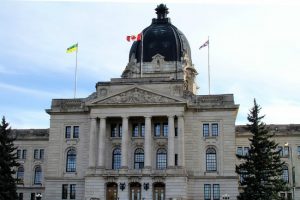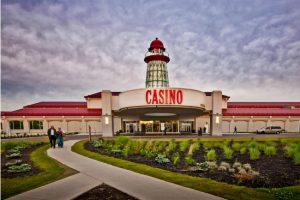 First Nations have announced the renewal of their gaming compact with Saskatchewan government, further extending it for 10 more years. In 2002, the tribal nations inked a multi-year gaming agreement with the local government to operate gambling facilities established on tribal lands. Under the recently-signed agreement, the tribe’s gaming compact is to expire in 2037. But First Nations’ happiness is not complete as the tribal nations failed to make its long-craved dream come true and eliminate, or at least reduce its current 25% gaming tax.
First Nations have announced the renewal of their gaming compact with Saskatchewan government, further extending it for 10 more years. In 2002, the tribal nations inked a multi-year gaming agreement with the local government to operate gambling facilities established on tribal lands. Under the recently-signed agreement, the tribe’s gaming compact is to expire in 2037. But First Nations’ happiness is not complete as the tribal nations failed to make its long-craved dream come true and eliminate, or at least reduce its current 25% gaming tax.
Similar to American Indian tribes, Canadian First Nations are engaged in gaming. Casinos on First Nations reserves in Canada generate significant economic benefit to the country. Consequently, Chiefs in assembly were prone to give First Nations the right to operate for 10 more years. Last week, the authorities gave an approving nod to the Saskatchewan Indian Gaming Authority (SIGA) to renew their gaming compact with the Saskatchewan government. The extension of the agreement is a small step forward for the tribal nations, but it is even not close to First Nations’ final goal.
First Nations’ Expectations Smashed
 Chief Bobby Cameron of the Federation of the Sovereign Indigenous Nations (FSIN) commented that the tribal nation expected to cut, if not eliminate, its gaming tax. The leader of the tribal nation added that they were pushing to reduce the gaming tax from 25% to 15%, but they saw their dreams shattered.
Chief Bobby Cameron of the Federation of the Sovereign Indigenous Nations (FSIN) commented that the tribal nation expected to cut, if not eliminate, its gaming tax. The leader of the tribal nation added that they were pushing to reduce the gaming tax from 25% to 15%, but they saw their dreams shattered.
Mr. Cameron explained that it is unfair for the state to tax First Nations’ gaming operations, as their casino facilities are located on plots of land, which are owned by the Canadian tribes. Chief Wayne Semaganis of Little Pine First Nation shared that he opposed the extension of the deal. He was annoyed by the fact that the authorities gave them no choice at all, describing the situation as “take it or leave it”.
Speaking of the rising discontent, Saskatchewan’s Minister responsible for SLGA Gene Makowsky announced that the agreement is in the best interest of both parties. He pointed out that the tax rate is negotiable in every 5 years of the contract. He admitted that SLGA generates a robust gambling tax revenue to Canada’s coffers and the First Nations gambling operations spur economic activity.
The aboriginal groups firstly signed a gaming compact with the government in 2002. According to it, the First Nations’s casino owners were obliged to share their revenue with Saskatchewan’s 74 First Nations, the province and the communities where they are located. The initial share, which they had to pay was 37.5% of their gross gaming revenue (GGR). With the time passing, the initial rate fell by as much as 25%.



















